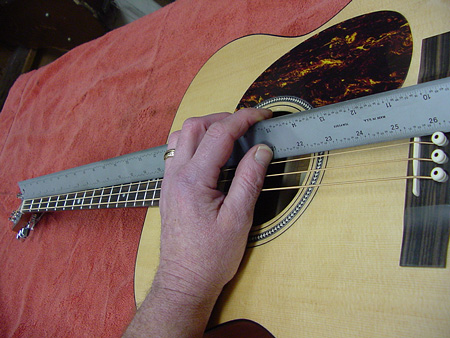Buying A Kid A Guitar
Related Articles:
• How to buy a cheap beginner’s guitar
• How to buy kid’s guitar
• How to buy strings
• Recommended Music Stores and Shops in Portland Oregon: Where musicians in the know buy their instruments, get them repaired, and have them customized
When it’s time to go guitar shopping for a child, parents are often confused about what to buy. This is a guide for how to save money and make sure that your child enjoys his or her time on the guitar.
I recommend printing this list and bringing it to the store with you. If you can’t buy a guitar before your lesson, it doesn’t matter, because I have a ton of awesome guitars that you are welcome to use!
If you’re in Portland Oregon, I recommend buying at:
- Trade Up Music, located at SE Division and SE 47th in SE Portland. Tell them Amanda of Whirling Squirrel sent you! 503.236.8800
- Old Town Music on SE 11th. Talk to Hank. 503.295.6808
- Showcase Music and Sound at SE 34th and Hawthorne 503.231.7027
Purchasing Options: Ages 3-6
- Buy the child a small, very inexpensive acoustic guitar, ukulele, or other instrument of deadly unintonated cacophony, and let them pound away at it, making noise. If you’re in Portland Oregon, I recommend signing the child up for Music Together: inexpensive group kids’ music classes at Community Music Center on SE Francis and 33rd in Portland Oregon. I wouldn’t spend time on private lessons until the age of 6. Joy in music is important. Do not expect much of the kid with practice at this time.
Purchasing Options: Ages 6-10
New/Used Small “Child’s Size” Acoustic Guitar: Inexpensive $100-$200, expensive $500-$5,000+
- PROS: Cheap, easy to buy, no hassle in the store, so things “seem” okay at first purchase.
- CONS: Much, much harder to play. Much less cool sounds. Kids tend to give up more easily when their instrument is an inexpensive acoustic guitar. You’ll end up replacing it anyway down the road. Kids will be very impressed by my electric guitars and their weird sounds. Inexpensive acoustic guitars are just about the most physically difficult situation a beginner could be placed in.
- MODELS: BABY TAYLOR, MARTIN BACKPACKER, TAYLOR MINI, AND CORT, EPIPHONE, AND OTHER LOW-END MODELS.
New Small “Child’s Size” Electric Guitar and Amp Package: $100-$200
- PROS: Super easy to play! Inexpensive. The electric guitar can make weird sounds, and kids love cacophony.
- CONS: He/she will outgrow it. I do not generally recommend child size electric guitars. They have loads and loads of problems, including staying in tune. However, if price is a serious issue, take this option. Just remember that these packages are often new, and the guitar and amp that you just bought for $200 decrease in resale value by about $125 or more as soon as you leave the store. If you went to Guitar Center to buy this package, the price you’ll pay for these packages also goes to corporations that don’t support local musicians. You’ll also get terrible customer service, and chances are, that Guitar Center deal you got doesn’t include the guitar being intonated, so it won’t play in tune, so you’ll need to take it to another repair shop and spend more money and time.
- MODELS: SQUIER, FENDER, EPIPHONE AND OTHER LOW-END MODELS.
RECOMMENDED: Used Regular Size Electric Guitar and Amp Package: $150-$250 on up
- PROS: Super easy to play! Inexpensive. The electric guitar can make weird sounds, and kids love cacophony. The child will never outgrow it. It will not have intonation “tuning” issues like the smaller guitars do. The resale value will be great, because you bought used.
- CONS: You’ll spend $50-$100 more at the beginning. The child may simply be too small for the guitar (but this usually changes in about 2 months). Thankfully, Trade Up Music has a great refund policy and you can get another instrument at Trade Up for the same value within 1 week.
- MODELS: YOU ARE NOT LIMITED. SINCE YOU’RE BUYING USED, YOU CAN GET A QUALITY INSTRUMENT AND BRAND. ASK THE STORE EMPLOYEES TO HELP YOU.
MAINTENANCE
Once you buy the guitar, you’ll need to know a good “luthier.” A luthier is someone who repairs and/or builds instruments. You’ll need to bring in your guitar to a luthier about once every three months for “intonation” and “adjustments” to keep the truss rod in shape. YOUR GUITAR WON’T PLAY IN TUNE UNLESS YOU TAKE IT TO A LUTHIER EVERY ONCE IN A WHILE. I recommend:
- 12th Fret Custom Guitar Shop 2402 SE Belmont, since 1979. 503.231.1912. I used to work at the 12th Fret for many years. They are fantastic people and luthiers, nationally renowned experts. >>website
- Ryan Lynn’s EastSide Guitar Repair at 34th and Hawthorne. I have known Ryan for 10 years or more when he was the master luthier at Trade Up. Ryan runs a great shop and he’s a good guy. >>website

